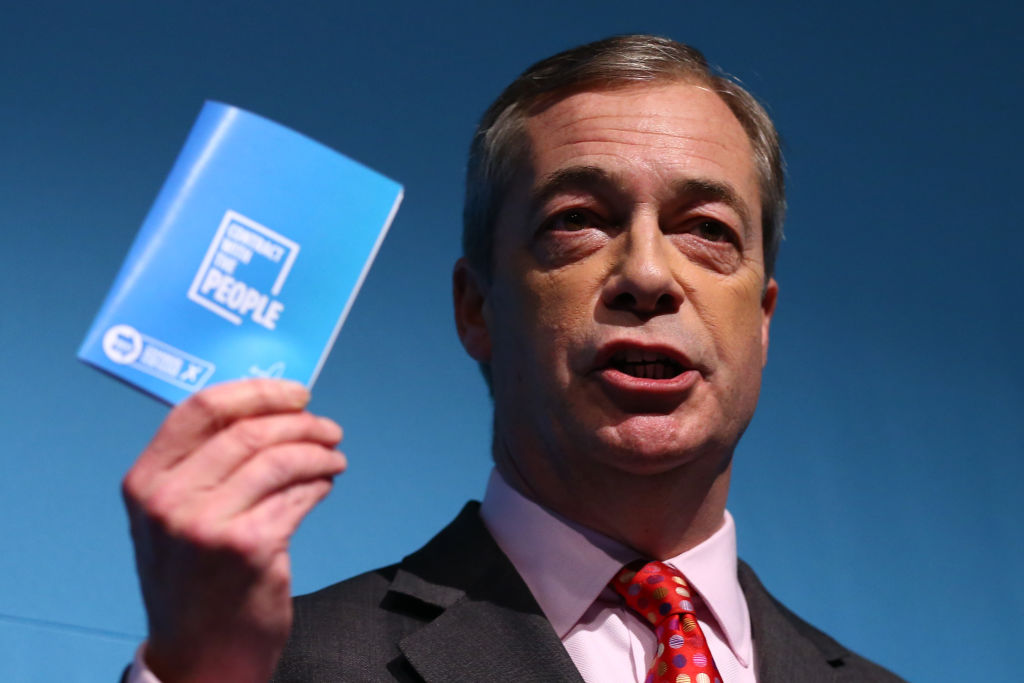Nigel Farage has never been particularly sold on manifestos or the hard slog of policy formulation in general. His aversion dates back at least to the Ukip manifesto of 2010 which was accompanied by detailed policy documents that ran to the length of an old telephone directory and proved a rich source of material for the many commentators seeking to mock the party. He later derided it as “drivel”.
So it is unsurprising to see him release a slim, 24-page booklet printed in large type on A6 pages, several with full-page photographs (rather than text) and to market it not as a manifesto at all, but as a “contract” with the British people.
Given that he admits the Brexit party cannot form a government, it is a moot point as to how such a contract could possibly be enforced. At the risk of being overly brutal, one is tempted to observe that it might as well all be written on the back of an envelope, or even one of Nigel’s old fag packets, so sketchy are the contents and so obviously are they dominated by him and him alone.
There is some standard “swamp-draining” stuff about political process: scrapping the House of Lords, allowing popular sentiment to trigger referendums on particular issues, guaranteeing civil service neutrality and the like.
There are also plenty of straight lifts from those much-derided old Ukip manifestos – such as cutting the foreign aid budget, strictly limiting net migration via combining an upper ceiling with an Australian-style points system, scrapping the BBC licence fee, abolishing inheritance tax, getting rid of VAT on domestic energy bills, cancelling HS2 and making coastal communities a special priority for economic regeneration.
Then there is a plan to rope Nigel’s...

Get Britain's best politics newsletters
Register to get The Spectator's insight and opinion straight to your inbox. You can then read two free articles each week.
Already a subscriber? Log in








Comments
Join the debate for just £1 a month
Be part of the conversation with other Spectator readers by getting your first three months for £3.
UNLOCK ACCESS Just £1 a monthAlready a subscriber? Log in